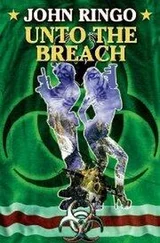Kristina remembered Dean Brusander’s words at a catechism examination, to the effect that the steam wagon was a wicked human device, tending to estrange the soul from its Creator, and, like all mechanical contraptions, leading to disaster for poor and rich alike. Steam power weakened and undermined soul and body, encouraging idleness, fornication, and immorality. The dean had therefore prayed God to spare them this curse and prevent steam wagons from ever being used in Sweden.
Kristina wondered if they sinned against any of God’s commandments by riding the steam wagon; she thought, if she had understood the dean rightly, it must be the sixth commandment.
She knew nothing in advance of what might happen on this steam journey, but as she and her loved ones were in the clutches of the wagon it was too late to regret it. She felt as though she had stepped into a conveyance which had been harnessed to a wild, untamed horse in the shafts for the first time; a romping, ferocious beast capable of anything, which might run off the road, bolt, or roll over on the ground in play. She could not forget the belching sparks from the steam wagon’s bowels; she felt that this was the most perilous part of their journey thus far. As yet nothing dangerous had happened to them in America, but they hadn’t got far from the shore: anything might still happen.
Danjel had opened his psalmbook to the “Prayer before Starting a Journey,” and when Kristina saw her uncle fold his hands, she did the same. She, her husband, and children already had risked their lives at sea, now they must do it on land as well; in silent prayer she invoked her Creator’s protection.
— 3—
In each end of the wagon was a narrow door, and over both doors were identical inscriptions in tall black letters:
DANGER!
WATCH YOUR STEP!
Karl Oskar had seen the same inscription near the pier in New York and as he now recognized it he asked their interpreter to tell him the meaning. Landberg said that these four words warned of dangerous places; when they saw the sign they must watch their steps and look carefully where they set their feet. Inexperienced travelers could easily take a false step when entering or leaving the wagon, and fall off.
Karl Oskar in his turn explained the words to Kristina, who said it was thoughtful to nail up placards in dangerous places in America; she too was going to keep in mind the four words signaling danger, they were so black and threatening she could never forget them.
Outside their window was a tall, white-painted signpost with several lines of foot-high letters:
SAFETY SIGNALS FOR TRAINS
A WHITE FLAG BY DAY
A WHITE LAMP BY NIGHT
SHOWS
ALL CLEAR
Karl Oskar wondered what this placard might mean; no doubt it concerned the travelers, therefore they ought to know. And it annoyed him that he understood not a single syllable of the new language, that he couldn’t decipher a word. It was like the first day at school, when Schoolmaster Rinaldo had held the ABC book to his eyes for the first time. But now he was a full-grown man, twenty-seven years of age, with three children of his own; yet in this country he felt like a schoolboy once more; he must learn to spell all over again, he must learn to recognize words. His inability to read the language did not seem so bad, but it vexed him not to understand the spoken words; it hurt him to hear people speak in his presence without understanding them; he felt inclined to believe they were talking about him, and he was ashamed and annoyed to be talked about before his face, disregarded. Here in America one could stand face to face with people who insulted one, yet one couldn’t do a thing about it; only stand there and stare, awkward, helpless, dumb. Since stepping ashore in America not many hours ago, he had felt foolish more often than during his whole life in Sweden.
But he refused to believe his intelligence had suffered from the emigration.
Their guide Landberg was standing at the entrance, his tall head concealing the inscription; he was speaking English to a man in a blue coat with yellow buttons; the man had a yellow sign on his cap, he must be one of the American guards, or steam-wagon officials. Karl Oskar surmised they were talking about the travelers inside the wagon. He listened with his ears open, trying to understand something that at least reminded him of words he understood. But the language of the interpreter and the American did not sound like human speech, rather like the buzz of a bumblebee in his ear; the sounds were distorted, mixed up, crazy through and through. The men twisted their mouths and made knots of their tongues in order to emit strange sounds; it seemed they imitated each other, made faces at each other as children might in play. To Karl Oskar’s ears the American language seemed an unaccountable mixture of senseless sounds, and he grew more depressed each time he listened to it; he would never be able to teach his mouth to use this tongue.
The official left the wagon after he had seen to it that both doors were closed, and now Landberg spoke in Swedish: “Hold on to your seats, good people! Our train is starting to move!”
The warning was followed by a long-drawn-out, piercing, evil yell from the first wagon. The immigrants had never heard the like of this horrible howl, produced by neither beasts’ nor human beings’ throats, but by a lifeless thing and consequently much more terrifying. When it stopped, there was silence in the wagon, a silence of fear and apprehension. Faces turned pale, hands grasped hands, the travelers clutched each other or sought support against benches and walls, against anything within reach.
The moment had arrived; the steam wagon was moving. They could hear the wheels thunder under them as they rolled along on the iron bars, they could see through the windows that they had started ahead.
Their wagon jolted and shook, it cracked and creaked. A minute passed, and two, it pulled still harder, and the wagon rolled and leaned over a little to one side. Some of the travelers crouched in terror to weigh down the other side with the weight of their bodies; Fina-Kajsa shrieked to heaven. It was like the shriek of a dying person; she said she was being choked. Ulrika of Västergöhl hurried to her and loosened her vest, and soon she grew quiet and breathed more easily.
“It’s turning over!” Johan screamed and gripped his mother’s legs. “It’s tipping over, Mother!”
“Keep quiet, boy!”
“I’m afraid!”
“Don’t be afraid! It isn’t dangerous!” Karl Oskar reassured the boy. “Lill-Märta and Harald aren’t crying. You’re the biggest, you mustn’t cry.”
Johan wanted to crawl up onto his mother’s knees, already occupied by the smaller children, but the closest he could get was to cling to her legs; he held on with all his strength while the wagon rolled on, and great tears rolled down his pale cheeks.
Kristina was as much afraid as the child holding on to her, but she forced herself not to cry out. As she looked through the window and saw houses, trees, and the very ground itself move backward, she felt nauseated, her eyes blurred, her throat closed, her head swam. She wanted to see nothing, feel nothing — she closed her eyes and clenched her teeth. She must drive away this dizziness. She held her children closer to her, she clenched her teeth still tighter, she mustn’t faint. . Perhaps she might escape it by sitting quite still, eyes closed. .
And while the train increased its speed, faster and faster, Kristina sat with her eyes closed. The engine blew out smoke and sparks from its interior, it belched and sputtered, it drew its breath heavily, in and out. The wheels rolled, creaked, and thundered, the wagons rocked and jerked, pulled and shook. And the people closed up inside sat in tense turmoil, each moment anticipating calamity.
Читать дальше










